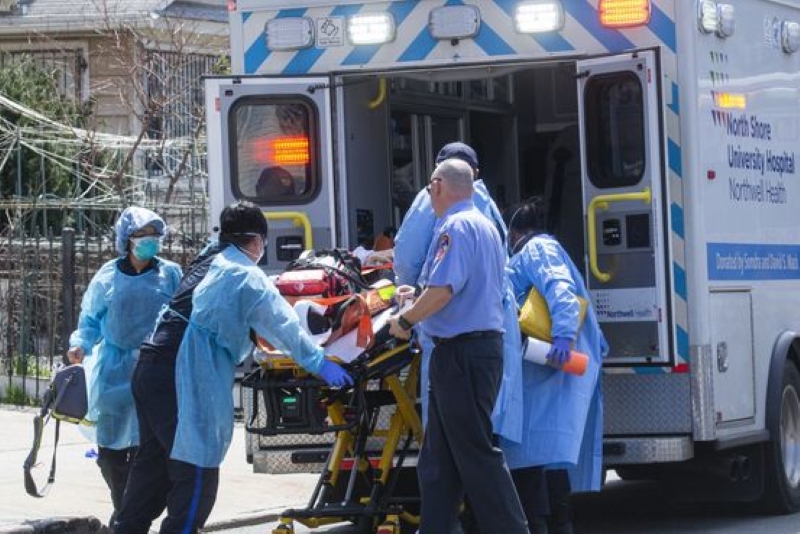New York City’s paramedics have begun negotiations for their long-overdue contract, stating that their wages are so low it is difficult to afford food, transportation, and housing.
According to the latest report, negotiations for a new contract for New York City’s emergency medical technicians and paramedics started last month. Union leaders claim that the low wages—starting at around $39,000 per year—have led to high turnover rates and staffing shortages. These, in turn, have contributed to the longest response times for emergencies. It is noted that the paramedics’ contract expired two years ago.
Union Aims for Wage Equity
The union’s primary aim is to narrow the wage gap between paramedics and other uniformed emergency responders. When Eric Adams ran for mayor in 2021, he promised “pay equity” for paramedics, but this has yet to be realized.
“We are just overworked and exhausted. There is no hope,” said Anthony Almojera, vice president of the paramedics’ union. Employees report that the number of 911 calls received daily is soaring, and the staff is simply unable to cope.
Almojera mentioned that last week, he had to dispatch a worker from Sunset Park in Brooklyn to Rikers Island in Queens because no closer staff was available.
Michael Fields, head of emergency rescue operations at the New York Fire Department, said that the staffing levels of emergency responders and paramedics have reached the city’s budget limits. However, he is still willing to accept more staff, which would shorten response times.
“If you give me more ambulances and more personnel, we can certainly reduce response times,” Fields said. “But we have to be fiscally responsible. The mayor is responsible for the entire city’s budget.”
Union Aims for Wage Equity
The starting annual salary for paramedics is $39,386, slightly lower than the $19.56 per hour (plus tips) that food delivery workers earn for a 40-hour workweek. The top salary for most paramedics is $76,472, while highly trained emergency responders can earn up to $92,635. Union members say that despite being frontline responders, their earnings are significantly lower than firefighters, with far fewer benefits and many more emergency calls per shift.
Oren Barzilay, president of the EMTs and paramedics union, said that due to low pay, emergency centers lose about 20% of their staff each year.
Danielle Gustafson, executive director of the nonprofit EMS FDNY Help Fund, said she recently wrote a check to help a paramedic pay rent for a subsidized apartment in New Jersey. This member had been living in his car and showering at the paramedic training academy. On weekends, the union paid for hotel rooms for him and his children.
“Much of what we do is related to how low the wages are for these paramedics and EMTs,” Gustafson said. “Many of them survive on overtime.”
She mentioned that some people live in faraway Pennsylvania to cope with the lower cost of living.
Personal Struggles of Paramedics
Paramedic Maggie Hope said her paycheck is about $1,300 each pay period, and she cannot afford to live anywhere near her Bronx ambulance station, so she commutes nearly two hours each way from Middletown, New York. She spends about $500 a month on gas and tolls.
“About six months ago, I looked at my bank account and saw I had only $17, and I really wasn’t sure how I was going to get to work,” she said. “I realized I had given so much to this organization, and it wasn’t giving me anything back in return.”
Hope recently resigned and found another job.
“It was difficult because I love being a paramedic, even if it means helping just one person,” she said. “But if you can’t afford the basics yourself, life hits rock bottom, and nothing else matters.”













Leave a comment